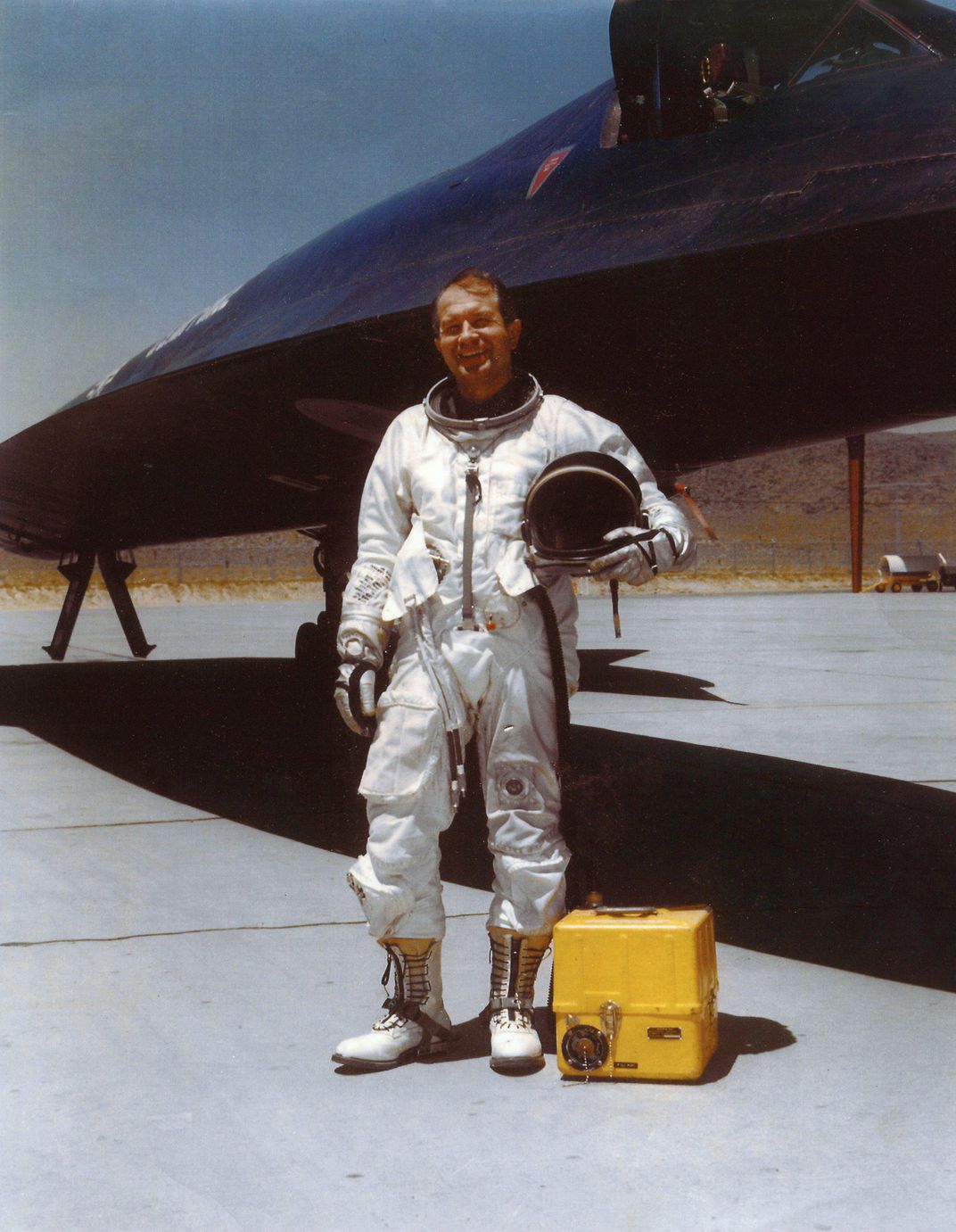Ken Collins appeared to be very drunk as the sodium pentothal was still in his system. His wife Jane was a very understanding woman, her husband couldn’t offer any explanation for his condition. The A-12 Oxcart was so secret he couldn’t talk about it.
The A-11 was a long-range, high-altitude aircraft that Lockheed started designing in 1959. It was a project from the Cold War. Vice President for Advanced Development Projects at Lockheed, Clarence “Kelly” Johnson, led the project team. Johnson had previously been in charge of the U-2 spy plane’s development. On February 29, 1964, five years after the A-11’s construction started, President Lyndon Johnson informed reporters that the aircraft, which was by then modified to the A-12 Oxcart production version with a smaller radar cross-section, had achieved over 2,000 mph and over 70,000 feet of altitude in tests conducted at Area 51.
During the first three years of pre-operational testing, three A-12s experienced notable crashes: one due to ground crew mistakes and two due to mechanical issues. Every pilot made a safe ejection. A-12 number 926, piloted by Ken Collins during a test flight with a subsonic engine, crashed on May 24, 1963, fourteen miles south of Wendover, Utah.
‘Colonel Ken Collins was the very first person to bail out of a Blackbird. The A-12,’ says Linda Sheffield Miller (Col Richard (Butch) Sheffield’s daughter, Col. Sheffield was an SR-71 Reconnaissance Systems Officer) on her Facebook Page Habubrats.

‘Later, after the A-12 program was canceled in 1968, he was my neighbor at Beale AFB, California. Ken had re-joined the Air Force and was an SR-71 pilot. Another interesting thing is that he was checked out in the SR-71 with my father, Richard “ Butch” Sheffield. They flew four flights together. My dad writes in his unpublished book that he was fully aware that Ken Collins was from the A-12 program because he had been briefed on Oxcart in 1965 at the Skunk Works. Only the first four men selected to fly the SR-71 were briefed on A-12. The rest of the men in the SR-71 program did not know about it. The interesting thing about this is that Dad cannot discuss it with Ken. That’s how secret the A-12 program was!
‘The A-12 program was so secret that Ken could not tell his wife Jane, what his occupation was. The cover story was that he worked at Hughes aircraft.’
Sheffield Miller continues;
‘In 1963 he bailed out over Utah, he was unharmed, and to his amazement, a man pulled him up in a pick-up truck with his A-12 canopy in the back of the truck and asked him if he needed a ride back to his airplane. Ken was totally unflappable, calmly said no, that the F-105 that had just crashed… It had a nuclear weapon on it! He asked for a ride to the nearest highway patrol office and climbed in the back of the pick-up truck.
‘Took a dime out of his survival kit called the secret number that he had memorized and told them where he was and where the A-12 had crashed. The crash was the result of a pitch up of the nose and it went into an uncontrollable, flat, inverted spin.
‘The CIA asked if they could inject him with sodium pentothal. Collins said yes. After the interrogation, Ken was dropped off at his home in Southern California where his wife Jane and their four children lived. He appeared to be very drunk as the sodium pentothal was still in his system. His wife Jane was a very understanding woman, her husband couldn’t offer any explanation for his condition. Ken Collins couldn’t talk about it.’
Sheffield Miller concludes;
‘These are the kind of men America needs to be proud of the ones that did their job, risked their life, not for the glory… but for love of country, thank you Ken.’
Photo by U.S. Air Force and Ken Collins

